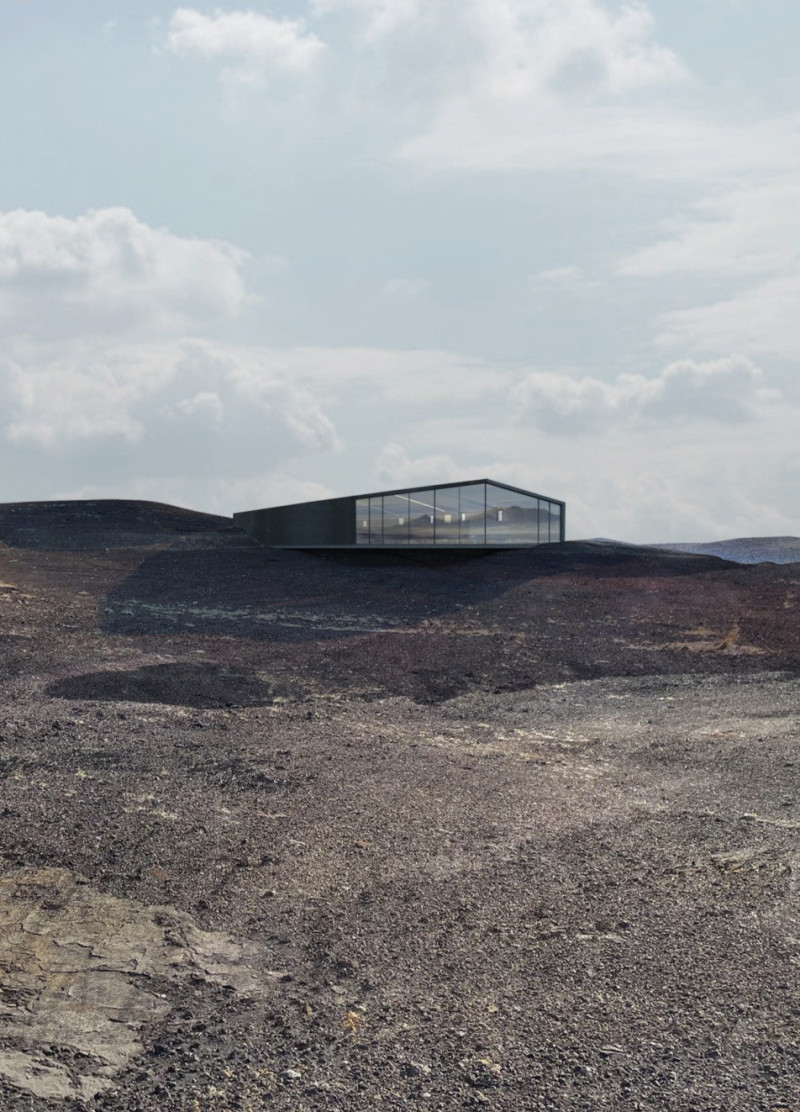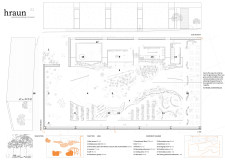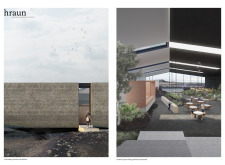5 key facts about this project
HRAUN is a greenhouse restaurant located in Iceland, designed to connect the culinary experience with the natural surroundings. Positioned next to a volcano and a lake, the focus is on growing ingredients on-site. By doing so, diners have a direct relationship with what they eat, which highlights local agricultural practices and traditions.
Extensible Greenhouse
The design features an extensible greenhouse that adapts as soil gathers. This allows for year-round cultivation of fresh produce, which is essential for maintaining a sustainable source of ingredients. The layout supports the growth of various plants, inviting visitors to engage with the agricultural process.
Facilities Overview
HRAUN includes essential facilities that ensure smooth operation. It has systems for electricity, plumbing, drainage, and fire protection. Notably, geothermal energy is utilized, drawing heat from the earth’s natural sources. This choice of energy aligns with modern practices aimed at reducing environmental impact and promoting sustainability.
Interior Spaces
The interior is composed of various functional areas, including a multipurpose hall, kitchen, bar, café, and recreation areas. The arrangement of these spaces allows for ease of movement and encourages social interaction among visitors. Large windows are a key feature, providing abundant natural light and framing stunning views of the surrounding landscape.
Construction and Materials
Reinforced concrete walls, rock wool thermal insulation, and a steel roof make up the primary materials of HRAUN. These choices support the structure while also ensuring it is energy efficient, a critical factor given Iceland's changing weather conditions. The durability of these materials reflects a commitment to practical design.
The design also emphasizes the importance of nature in dining. By incorporating large windows, diners can fully appreciate the beauty of the Icelandic scenery while enjoying their meals.























































